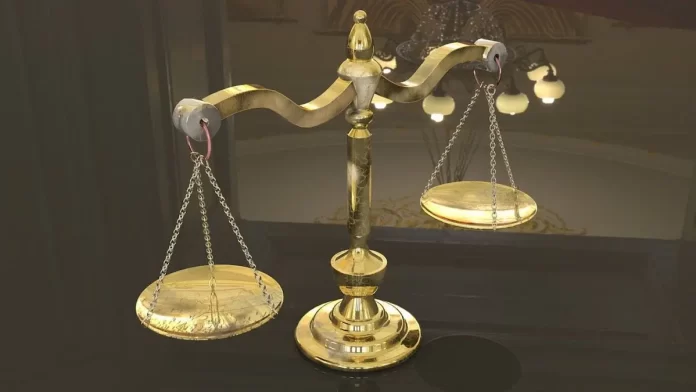Thugee, an organized criminal cult that plagued the Indian subcontinent for centuries, became a significant challenge during British rule in India.
This secret society of criminals engaged in a variety of criminal activities, primarily strangulation and robbery, often under the guise of religious rituals.
This article explores the origins, practices, and the British efforts to suppress Thugee in colonial India.
Origins of Thugee
Thugee has its roots in ancient times, with some historical accounts dating back to the 14th century.
The term “Thug” is believed to have originated from the Hindi word “thag,” meaning a cheat or deceiver.
The Thugs operated in a highly secretive manner, often forming close-knit groups that passed their criminal skills from one generation to the next.
Thugee Practices
The Thugs were notorious for their modus operandi, which typically involved befriending travelers, gaining their trust, and then, during the journey, strangling them with a handkerchief or rumal (a type of scarf).
These acts were not random; they followed a pattern that allowed the Thugs to execute their crimes efficiently and avoid detection.
The Thugs often operated along major trade routes, taking advantage of the chaotic and crowded conditions of Indian highways. Their ability to blend into the diverse social fabric of India made them elusive and challenging for authorities to apprehend.
British Recognition and Suppression
The British East India Company began to take notice of the Thugee phenomenon in the late 18th century.
The magnitude of the problem became apparent as reports of Thug attacks increased. In 1830, the British colonial administration initiated comprehensive efforts to suppress Thugee.
The Thuggee and Dacoity Suppression Acts:
To combat the Thugee menace, the British authorities enacted the Thuggee and Dacoity Suppression Acts in the 1830s. These acts provided legal mechanisms for the identification, prosecution, and punishment of individuals associated with Thugee and related crimes.
The Thuggee and Dacoity Suppression Acts empowered the British to arrest and try suspected Thugs without the need for the conventional evidence required in British courts.
While these legal measures were controversial, they were considered necessary to eradicate Thugee and protect the lives of travelers.
Thuggee Suppression Campaign:
With the legal framework in place, the British authorities launched a comprehensive campaign against Thugee.
A special police force was established, often referred to as the “Thuggee and Dacoity Department,” with the sole purpose of identifying and capturing Thugs.
The British strategy involved the use of informers, often reformed Thugs, who provided crucial information about the activities and whereabouts of their former associates. This approach proved effective in dismantling Thuggee networks.
Techniques and Challenges in Suppression
The suppression of Thugee posed unique challenges for the British administration. The secretive nature of the cult required innovative approaches to infiltrate and dismantle their operations.
The use of informers, undercover agents, and the employment of advanced surveillance techniques for that time played a pivotal role in the success of the suppression campaign.
Despite the progress made, the vast and diverse landscape of India presented logistical challenges. The British authorities struggled to cover the entire expanse of the subcontinent effectively. However, the commitment to eradicating Thugee remained strong.
Impact on Indian Society
The suppression of Thugee had a profound impact on Indian society. Travelers and traders who once lived in constant fear found a renewed sense of security. The eradication of Thugee contributed to the stabilization of trade routes and facilitated economic growth.
However, the stringent measures employed by the British also raised concerns about civil liberties and human rights.
The Thuggee and Dacoity Suppression Acts, while effective in curbing criminal activities, were criticized for their potential for abuse, as they granted sweeping powers to the colonial authorities.
Legacy of Thugee Suppression:
The British success in suppressing Thugee left a lasting legacy in India. The eradication of this criminal network was a testament to the determination and capabilities of the colonial administration.
The Thuggee and Dacoity Suppression Acts, despite their controversial nature, demonstrated the British commitment to maintaining law and order in their Indian territories.
The suppression of Thugee also played a role in shaping the narrative of British colonial rule in India.
While the eradication of Thugee contributed to a sense of security, the methods used by the British raised questions about the balance between maintaining order and protecting individual rights.
Conclusion
Thugee, a dark chapter in Indian history, posed a significant challenge to British rule in India. The organized criminal activities of the Thugs prompted the British administration to enact stringent laws and launch a determined campaign to eradicate this menace.
While the Thuggee and Dacoity Suppression Acts were effective in curbing criminal activities, they also highlighted the complex relationship between colonial authorities and the diverse societies they governed.
The legacy of the Thugee suppression campaign remains a subject of historical debate. It reflects not only the success of the British in maintaining law and order but also the ethical dilemmas inherent in the exercise of power.
The story of Thugee and its suppression provides valuable insights into the complexities of colonial governance and the delicate balance between security and individual freedoms.
